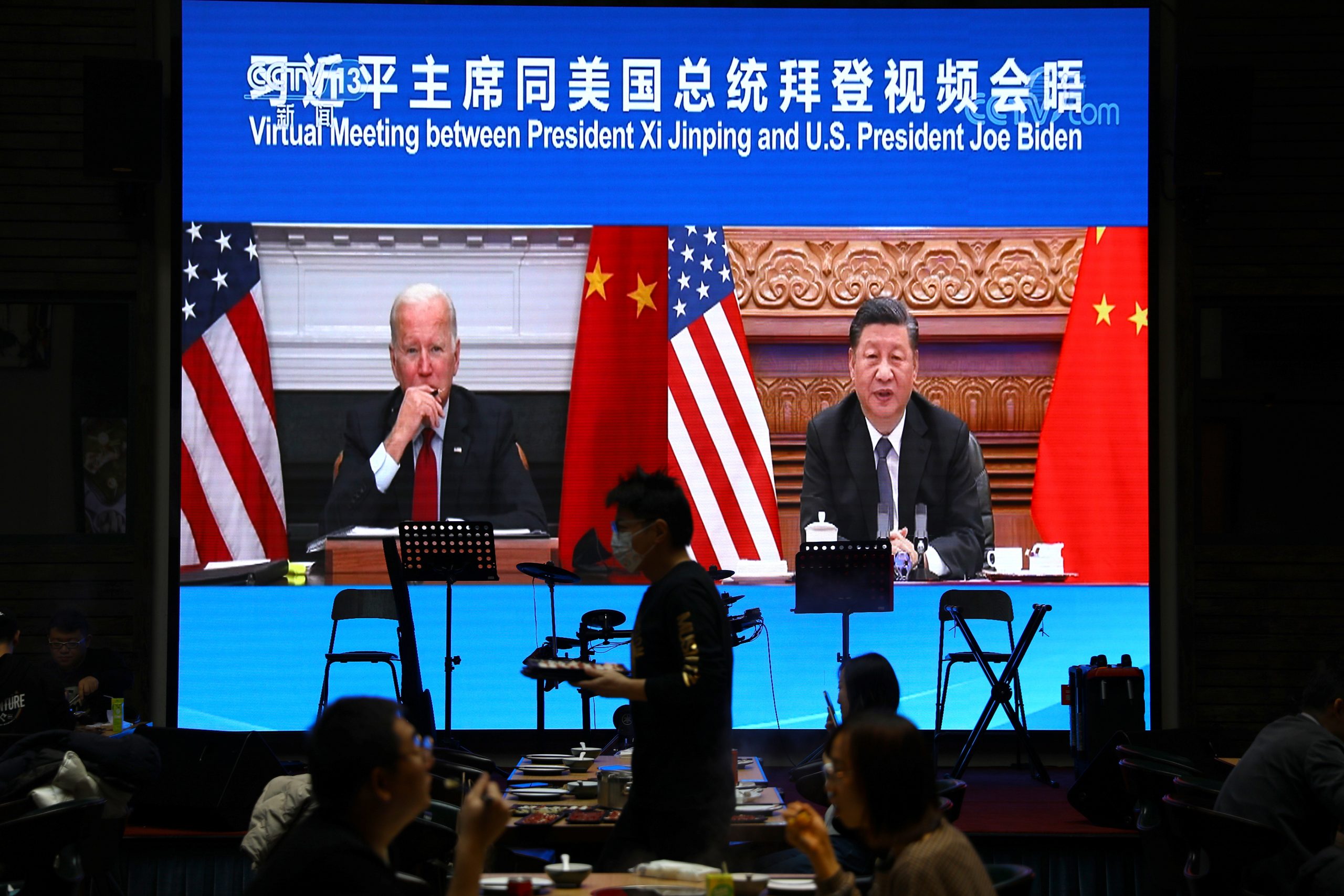
Ian Patrick, FISM News
[elfsight_social_share_buttons id=”1″]
The over three-hour meeting between U.S. President Joe Biden and Chinese President Xi Jinping concluded with few actions or decisions, but official reports have portrayed the call to be positive.
According to the official White House release from the talks, both “leaders discussed the complex nature of relations between our two countries and the importance of managing competition responsibly.” The conversation therefore touched on shared and diverged interests between the two nations.
The release portrayed Biden as a stalwart figure who remained committed to keeping U.S. interests at the forefront throughout the call. The report also reveals that the president brought up the human rights abuses in Xinjiang and the democratic concern over Hong Kong while asserting “the importance of freedom of navigation and safe overflight to” the Indo-Pacific as a whole.
Taiwan seemed to be the one topic that caused tension between the two leaders. A Chinese report, corroborated by U.S. outlets, revealed that Xi told Biden that those in Taiwan and in the U.S. that assert Taiwanese independence are “playing with fire.”
The U.S. has kept a diplomatically ambiguous relationship concerning Taiwan, officially supporting the “one-China” policy while continuing to provide the means for the separate democratic nation to defend itself.
The Taiwan situation has been increasingly tense in recent months as communist-controlled China continues its efforts to assimilate Taiwan into the mainland through show of force, despite claims to be friendly.
China has also spoken out against the U.S. for a recent report that affirmed a U.S. troop presence in the democratic island nation, as well as for official statements, including from President Biden, that Taiwan will be defended if it was needed.
On Monday’s meeting, Biden supported the official one-China policy while also saying the U.S. “strongly opposes” any attempts to drastically change the region “or undermine peace and stability across the Taiwan Strait”:
On Taiwan, President Biden underscored that the United States remains committed to the “one China” policy, guided by the Taiwan Relations Act, the three Joint Communiques, and the Six Assurances, and that the United States strongly opposes unilateral efforts to change the status quo or undermine peace and stability across the Taiwan Strait.
Reuters reports that the Mainland Affairs Council of Taiwan responded to Xi’s remarks saying the island nation would not give in to threats while denouncing the “pressure and intimidation” used by China.
Biden and Xi also discussed other issues such as trade, Tibet, “health security,” and the climate crisis. Notably missing from discussions, as pointed out by the New York Post, was any mention of COVID-19 and the investigations into the virus originating from Chinese territory.
Aside from trying to deflate tensions, no tangible decision or plan of action seemed to emerge from the lengthy discussion. Scott Kennedy, a China expert at Washington’s Center for Strategic and International Studies think tank, affirmed this thought and suggested that if no decisive action is taken then “this ended up being a recitation of both sides’ basic positions.”
Other experts on U.S.-China relations believe that this discussion is a good first step to strengthening ties between the two nations, if that is the ultimate goal. A senior U.S. official, speaking with Reuters, said that they “were not expecting a breakthrough” from the meeting.
